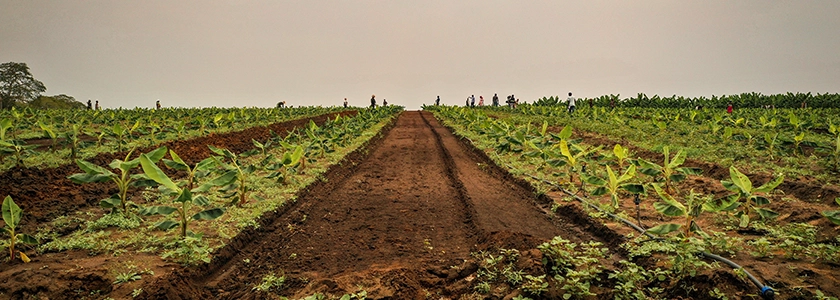The new Erasmus+ Capacity Building in Higher Education (CBHE) program ‘Simulation-based training and digital technologies combined with service-learning approach for experiential and reflective learning in nutrition and dietetic education’ (MAHINE), which is led by the Universidad Europea del Atlántico (European University of the Atlantic, UNEATLANTICO) and in which the Universidade Internacional do Cuanza (International University of Cuanza, UNIC) and the Iberoamerican University Foundation (FUNIBER) participate, has officially started its activity, with several virtual meetings conducted between partners to discuss the first steps of the project and the implementation of new digital tools to improve the training of nutritionists.
MAHINE (the name is inspired by a very nutritious popular dish consumed in southern and western Angola) seeks to address malnutrition and the lack of training of nutritionists in Angola through advanced technology and a service-learning approach.
The project involves the collaboration of a diverse group of partners from Spain, Italy, Portugal, and Angola. The main partners include the Universidade Internacional do Cuanza (UNIC) and Universidade José Eduardo dos Santos (UJES) in Angola and the Università Politecnica delle Marche (UNIVPM) in Italy. In addition, MAHINE has the support of other institutions associated with the project: The Iberoamerican University Foundation (FUNIBER), the NGO Nutrición sin Fronteras (NSF), and the Colegio Profesional de Dietistas-Nutricionistas de Cantabria (CODUNICAN) in Spain; the Universidade do Oporto (UPORTO) and the Universidade de Trás-os-Montes e Alto Douro (UTAD) in Portugal; AP Hogeschool Antwerpen in Belgium; and UKAMBA in Angola.
The first virtual meetings with the partners were held on October 10 and 20 in order to coordinate the first tasks of the project, from the signing of bilateral agreements to the drafting of the first project deliverables. The consortium has begun work on the collaborative design of a new approach to the practical training of nutritionists. On October 30, participants from UNEATLANTICO and UNIC met to discuss the creation of chatbots and case studies focused on Angola. During the meeting, Iñaki Elío, director of the Degree in Human Nutrition and Dietetics at UNEATLANTICO, and Virginia Kambani Sumba, professor of nutrition at UNIC, exchanged their experiences on nutrition education in their respective countries and the challenges associated with the training of nutritionists. It was agreed to select representative case studies of health problems in Angola, prioritizing those that are easy to address, and to define the five central themes that will guide the development of virtual patients.
MAHINE will develop new tools to improve the practical training of nutritionists in higher education institutions in Angola. With the help of chatbots, students will be able to improve their skills with repeated practice of interactions with virtual patients, contextualized in the nutritional reality in Angola.
The use of chatbots is only one part of the project, which also includes the promotion of services to the community from the participating universities, with the aim of participating in improving public health in Angola. Based on training in agronomy and using the ‘service-learning’ methodology, it is proposed that future nutritionists, together with their tutors, design workshops, give talks, and develop communication campaigns, among other possible actions, with the aim of improving the local nutritional situation.
The MAHINE partners will hold their kick-off meeting between January 19-22 next year in Santander, Spain, to establish the key points of the project and finalize the action plan for the next three years.

“Funded by the European Union. Views and opinions expressed are however those of the author(s) and do not necessarily reflect those of the European Union or the European Education, and Culture Executive Agency (EACEA). Neither the European Union nor the granting authority can be held responsible for them.”
